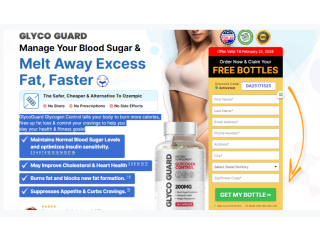Tretinoin vs retinol which is better
Jan 4th, 2023 at 11:02 Beauty & Well being Saharsa 197 views Reference: 4592Location: Saharsa
Price: Contact us Negotiable
When it comes to skincare, there are two ingredients that you’ll often hear about when searching for the best products: tretinoin and retinol. Both tretinoin and retinol are derived from vitamin A, so they share some similarities in terms of their effects on the skin, but there are also some notable differences. In this blog post, we’ll explore these differences and help you determine which one is better suited for your individual needs.
What is tretinoin?
Tretinoin Cream 0.05% Australia is a retinoid, meaning it is derived from vitamin A. It works by increasing cell turnover, which leads to brighter, smoother skin. Retinol is another form of vitamin A that has similar effects on the skin. However, tretinoin is more potent than retinol and is therefore more likely to cause side effects such as dryness, redness, and irritation.
What is retinol?
Retinol is a vitamin A compound that is found in many over-the-counter anti-aging products. Retinol is an ingredient in many popular anti-wrinkle creams and serums. Retinol can also help to fade dark spots and improve skin tone.
While retinol is a powerful anti-aging ingredient, it is not right for everyone. Some people may experience irritation or redness when using products containing retinol. Tretinoin is another vitamin A compound that is available by prescription only. Tretinoin is less likely to cause irritation than retinol, but it may take longer to see results.
The difference between tretinoin and retinol
Tretinoin and retinol are both forms of vitamin A. They are both used to treat acne, but they work in different ways. Tretinoin is a prescription medication that is applied to the skin. Retinol is an over-the-counter product that is available in cream or gel form. It works by exfoliating the skin and increasing collagen production.
So, which one is better? Tretinoin is more potent than retinol, so it can be more effective at treating acne. However, it can also cause more side effects, such as dryness, redness, and irritation. Retinol is less likely to cause these side effects, but it may take longer to see results. Ultimately, the decision between tretinoin and retinol comes down to personal preference and what your skin can tolerate
Which one is better?
When it comes to tretinoin vs retinol, there is no easy answer. Both have unique benefits that make them great for certain skin types and concerns. However, there are also some key differences.
Tretinoin is a powerful prescription-strength retinoid that is most commonly used to treat acne. It can also help reduce the appearance of fine lines, wrinkles, and dark spots. While it is very effective, it can also be quite drying and cause irritation, redness, and peeling. As such, it is not recommended for those with sensitive skin or rosacea.
Retinol, on the other hand, is a much gentler over-the-counter form of retinoid that can be found in many skincare products. It is often used to help improve the overall texture and tone of the skin. Unlike tretinoin, retinol is suitable for all skin types and usually causes minimal side effects like dryness or flaking.
So, which one should you choose? Ultimately, the best option for you will depend on your specific skin type and concerns. If you have very oily or acne-prone skin, tretinoin may be a better option for you as it is more effective at treating these issues. However, if you have sensitive skin or are concerned about potential side effects like irritation, retinol may be the best option for you.
Conclusion
In conclusion, while tretinoin and retinol are both effective in treating acne, aging skin, and dark spots, they do have different applications. Tretinoin is the more potent of the two so it should be used with caution due to potential side effects. Retinol is less irritating than tretinoin but may take longer to work and may not provide as dramatic results. Ultimately, it depends on a person's individual needs and preferences when deciding which one will be better for them.




